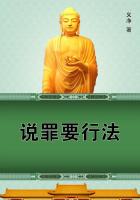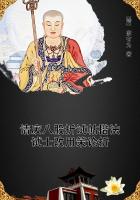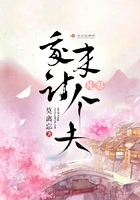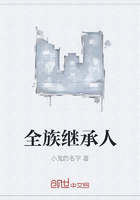PIERRE was sitting opposite Dolohov and Nikolay Rostov. He ate greedily and drank heavily, as he always did. But those who knew him slightly could see that some great change was taking place in him that day. He was silent all through dinner, and blinking and screwing up his eyes, looked about him, or letting his eyes rest on something with an air of complete absent-mindedness, rubbed the bridge of his nose with his finger. His face was depressed and gloomy. He seemed not to be seeing or hearing what was passing about him and to be thinking of some one thing, something painful and unsettled.
This unsettled question that worried him was due to the hints dropped by the princess, his cousin, at Moscow in regard to Dolohov’s close intimacy with his wife, and to an anonymous letter he had received that morning, which, with the vile jocoseness peculiar to all anonymous letters, had said that he didn’t seem to see clearly through his spectacles, and that his wife’s connection with Dolohov was a secret from no one but himself. Pierre did not absolutely believe either the princess’s hints, or the anonymous letter, but he was afraid now to look at Dolohov, who sat opposite him. Every time his glance casually met Dolohov’s handsome, insolent eyes, Pierre felt as though something awful, hideous was rising up in his soul, and he made haste to turn away. Involuntarily recalling all his wife’s past and her attitude to Dolohov, Pierre saw clearly that what was said in the letter might well be true, might at least appear to be the truth, if only it had not related to his wife. Pierre could not help recalling how Dolohov, who had been completely reinstated, had returned to Petersburg and come to see him. Dolohov had taken advantage of his friendly relations with Pierre in their old rowdy days, had come straight to his house, and Pierre had established him in it and lent him money. Pierre recalled how Ellen, smiling, had expressed her dissatisfaction at Dolohov’s staying in their house, and how cynically Dolohov had praised his wife’s beauty to him, and how he had never since left them up to the time of their coming to Moscow.
“Yes, he is very handsome,” thought Pierre, “and I know him. There would be a particular charm for him in disgracing my name and turning me into ridicule, just because I have exerted myself in his behalf, have befriended him and helped him. I know, I understand what zest that would be sure to give to his betrayal of me, if it were true. Yes, if it were true, but I don’t believe it. I have no right to and I can’t believe it.” He recalled the expression on Dolohov’s face in his moments of cruelty, such as when he was tying the police officer on to the bear and dropping him into the water, or when he had utterly without provocation challenged a man to a duel or killed a sledge-driver’s horse with a shot from his pistol. That expression often came into Dolohov’s face when he was looking at him. “Yes, he’s a duelling bully,” thought Pierre; “to him it means nothing to kill a man, it must seem to him that every one’s afraid of him. He must like it. He must think I am afraid of him. And, in fact, I really am afraid of him,” Pierre mused; and again at these thoughts he felt as though something terrible and hideous were rising up in his soul. Dolohov, Denisov, and Rostov were sitting facing Pierre and seemed to be greatly enjoying themselves. Rostov talked away merrily to his two friends, of whom one was a dashing hussar, the other a notorious duellist and scapegrace, and now and then cast ironical glances at Pierre, whose appearance at the dinner was a striking one, with his preoccupied, absent-minded, massive figure. Rostov looked with disfavour upon Pierre. In the first place, because Pierre, in the eyes of the smart hussar, was a rich civilian, and husband of a beauty, was altogether, in fact, an old woman. And secondly, because Pierre in his preoccupation and absent-mindedness had not recognised Rostov and had failed to respond to his bow. When they got up to drink the health of the Tsar, Pierre, plunged in thought, did not rise nor take up his glass.
“What are you about?” Rostov shouted to him, looking at him with enthusiastic and exasperated eyes. “Don’t you hear: the health of our sovereign the Emperor!”
Pierre with a sigh obeyed, got up, emptied his glass, and waiting till all were seated again, he turned with his kindly smile to Rostov. “Why, I didn’t recognise you,” he said. But Rostov had no thoughts for him, he was shouting “Hurrah!”
“Why don’t you renew the acquaintance?” said Dolohov to Rostov.
“Oh, bother him, he’s a fool,” said Rostov.
“One has to be sweet to the husbands of pretty women,” said Denisov. Pierre did not hear what they were saying, but he knew they were talking of him. He flushed and turned away. “Well, now to the health of pretty women,” said Dolohov, and with a serious expression, though a smile lurked in the corners of his mouth, he turned to Pierre.
“To the health of pretty women, Petrusha, and their lovers too,” he said.


